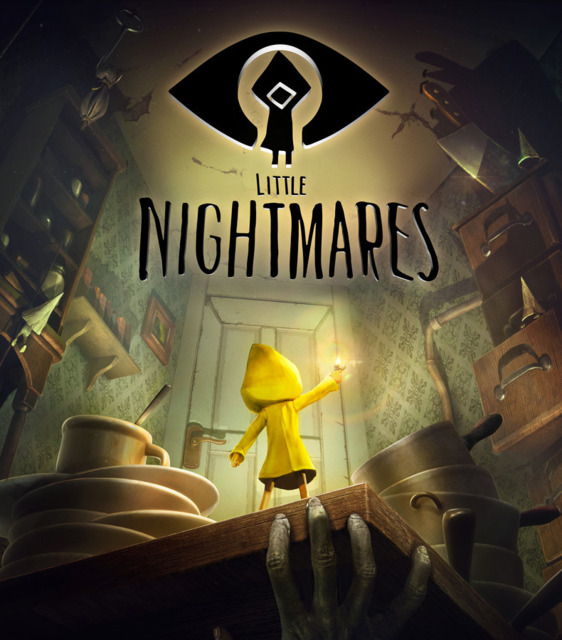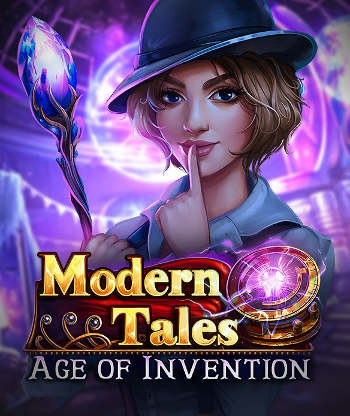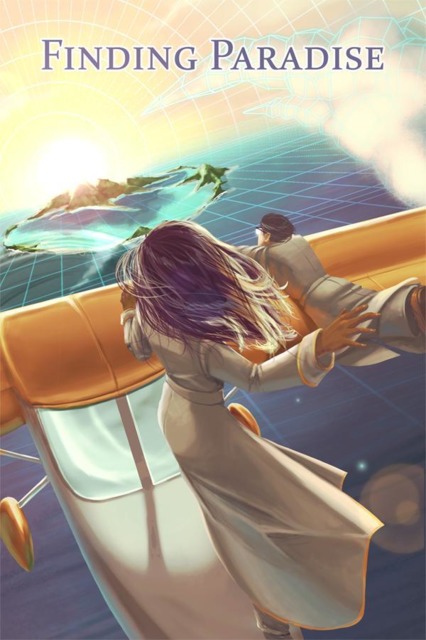The Dredge of Seventeen: January
By Mento 0 Comments
When it comes to game releases every year has its big headliners and hidden gems, but none were more packed than 2017. As my backlog-related project for this year I'm looking to build a list of a hundred great games that debuted at some point in 2017, making sure to hit all the important stops along the way. For more information and statistics on this project, be sure to check out this Intro blog.
Here we go with our first gaggle of 2017 leftovers. My rough goal is to hit around three games per month, but I managed to squeeze in four this time to give ourselves a rolling start:
Little Nightmares

I was inspired to boot up this atmospheric little horror platformer as its sequel is due out later this month (February). The game's clearest strength is its presentation: not only do its characters have this wonderfully off-putting claymation quality to them, especially the large lumpy antagonists you must avoid, but there's excellent use of light and shadow throughout. It's a game that follows in the quiet footsteps of Playdead's Limbo and Inside, delivering a dialogue-free yarn about an abandoned child looking for an escape path across some deeply hostile territory, with gameplay instances focused on either environmental puzzles involving pushing and pulling objects or stealth sequences where you need to not be where any of the game's enormous foes can see you. It also gets more bleak and strange as it continues, and I always appreciate a horror narrative that just digs deeper and deeper into an uncanny realm.
For the most part I liked playing Little Nightmares, but there's certain annoyances that are unfortunately inherent to its particular wordless narrative approach: to whit, there's next to nothing in terms of direction or UI. The former's tough when you need to grab some random object in the background (nothing ever really stands out in the game's drab darkness) to bring down a platform needed to progress, while the latter's a more prominent concern during the stealth sequences (no vision cones or the like; enemies can just spot you off-screen sometimes too, and their surprised sounds are usually the only warning you get). I appreciate that there were stylistic choices that took priority, and the game's not all that challenging unless you're going for the no-deaths achievement or the speedrun, but it can make certain fail states or momentary roadblocks seem unfair or cheap. It is an excellent atmosphere piece though, and in a less packed year I'd probably give it a much higher placement. As it stands...
Ranking: C. (That's a high C-Rank mind, putting the game somewhere around the 40s in the upper half of the eventual top 100. I do think it's better than Mini Ghost and Poi, which currently occupy the 50th and 51st slots respectively.)
Crowtel Renovations

Crowtel's a cute little game about a crow that owns a rundown hotel who must blast their way through several floors to elude a pair of health inspector cats determined to close the place down. It's a shooter/platformer hybrid with a simple control scheme and very little in the way of features or power-ups, though the difficulty is moderately high throughout and there's a variety of different building-related hazards, enemies, and bosses to overcome. Examples might include an AC on the fritz causing slippery ice and evil snowmen to form, or a construction worker mole still building the top floor who hates being woken up while on his break.
Crowtel Renovations feels like, and is, an expanded GameJam or demo concept: the original being the sort of basic but appealing freeware Itch.io game that a developer might toss together over a week, and then after everyone's positive feedback decides to turn it into a "real game" by filling it with enough content and variety to justify a modest price tag. I kinda love seeing these, because it feels like watching in real-time a fledgling Indie game designer earn enough confidence and experience to make a living out of what was maybe once a hobby or distant dream. Even so, the run-and-gun gameplay is a bit too plain for me and I'm not all that charmed by its silly and UwU sense of humor; it feels like Frog Detective where it's all a bit... cloyingly wholesome? Even when it's being subversive? Also feels like it's riffing on Pixel's Kero Blaster a bit too much (especially the bonus story that features a frog protagonist) to the extent that I thought it was the same developer during most of the playthrough. It's not, for the record, though this SinksAdventure person does a darn good impression.
Ranking: D. (No knocks against it but I don't see it hanging with most of my list so far given how rudimentary and short it is. It's not really trying to shake the pillars of heaven though; it just wants to be this small and adorable shooter thing about a hotelier bird that shyly asks for a couple hours of your time.)
Modern Tales: Age of Invention

You better believe I have a stack of HOPAs (Hidden Object Puzzle Adventures, learn more here if you dare) to pad out this top 100 list, accumulated over the years from a whole bunch of Artifex Mundi IndieGala bundles. HOPAs are all functionally identical: a combination of basic inventory puzzles, Layton-style IQ puzzles involving sliding blocks or logic grids, and of course the requisite hidden object scenes. I burned almost everything I might have to write about them in that Rainy Days and Mundis series, but they're weirdly compelling casual gaming comfort food that are never anything to write home about.
The random HOPA pick for this month, Modern Tales, does have some wild narrative twists to it as an unexpected bonus. Set at the dawn of the 20th century with a focus on inventors and scientific discovery, the heroine will: buy a Porsche from Mr. Porsche and later abandon it; ride a Zeppelin after stealing it from Mr. Zeppelin and crash it into a mountain after the bad guy shoots it with a laser; befriend a teenaged Coco Chanel, presumably while avoiding talking politics; and fall in love with a 21-year-old Albert Einstein after a meetcute in Switzerland (she literally "finds a stranger in the Alps," so to speak). Despite putting the spotlight on science and engineering brilliance the entire game, the dramatic conclusion has the heroine shoot a purple beam from a magic staff at the bad guy to non-lethally freeze him in place once she runs out of ideas. I normally don't play these games for the story, but this was one of the few exceptions where it was retroactively worth it.
Ranking: E. (Let's be real; I'm figuratively insulating the basement with these HOPA picks, all of which can happily sit at the bottom of the top hundred list until something else can knock them off. That said, I think the above narrative weirdness might elevate this one above its hidden object peers.)
Finding Paradise

The pick of January's particular litter is this sequel to Freebird's To the Moon: a weepy, narrative-focused adventure game built within the RPG Maker engine. As before, the game centers around the "final wish" company Sigmund Corp., which operates similarly to the enterprise in Eternal Sunshine of the Spotless Mind in that they strap their clients into a bunch of gizmos and artificially tinker with memories to the client's preferences. With Sigmund, the idea is to give a dying patient memories of a life they never had but dearly wished for: fixing regrets, making different choices, and completing lifelong goals they had to abandon for one reason or another. In To the Moon, the Sigmund Corp. employees Dr. Eva Rosalene and Dr. Neil Watts helped client Johnny Wyles complete his dream of reaching the moon; in Finding Paradise, the client Colin Reeds simply wants to die happier than he already is without changing too much (in particular, retaining his wife Sofia and son Asher).
The game has a structure that initially seems straightforward: for the process to work, the two technicians have to first traverse the subject's memories from most recent to furthest in the past, though a strange hiccup sees them alternating between his advanced age and his childhood moving in a "decaying orbit" towards a moment in his early adulthood. Each memory "scene" requires that they recover a certain amount of memory data - represented as orbs - and then find a "memento" (an important recurring item) to travel to another point in his life; rather than have you hunting for collectibles, though, these orbs and mementos are almost always in the critical story path. The later twists and turns eventually upset this pattern, and then the game speeds up towards its heartfelt conclusion. Since most of the best parts of this game are deeply entwined with the telling of its story, I'll have to spoiler-block the rest:
The ending isn't quite as emotionally impactful as To the Moon's, but the unexpected left-turns in the story made up for it. It also still retains To the Moon's goofy sense of humor that arises between the more dramatic moments: Dr. Neil Watts is frequently a workshy and insensitive buffoon that Dr. Eva has to rein in, and despite existing in the story as a Greek chorus commentating on someone else's life they're afforded their moments of personality too. Sounds like the developers intend to keep making more games in this series, though hopefully with shorter gaps than the six years between To the Moon and Finding Paradise, so here's hoping another one will show up this year or next.
Ranking: B. (I'm thinking somewhere around the same place as Rakuen, which is currently #33, since the two share a lot of DNA: in addition to similar emotional themes and the RPG Maker connection, both also involve Laura Shigihara and feature a song of hers.)
